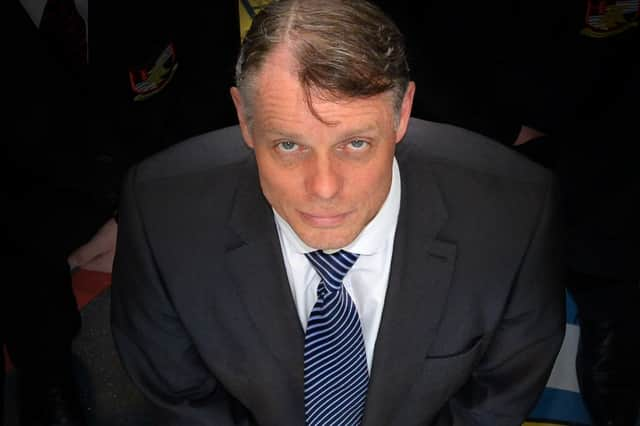Assistant head at South Tyneside school given teaching ban for awarding false marks and swapping pupils' work


The indefinite ban – which can be reviewed after a minimum of two years – was imposed on Colin Laughton, who was employed at the Hebburn Comprehensive School as Assistant Headteacher and Head of ICT until January 2020.
A professional conduct panel meeting by the Teaching Regulation Agency heard that the Oxford Cambridge and RSA examination board wrote to the
Advertisement
Hide AdAdvertisement
Hide Adschool’s Headteacher in July 2019 in respect of a suspected malpractice regarding examinations and assessments carried out at the school.
Mr Laughton, who worked at the school for 23 years, admitted that he awarded false marks for internally assessed components of one or more pupils’ coursework where there was no evidence to justify the marks awarded and that he submitted false marks for one or more pupils.
He also admitted he gave one student – Pupil A – 34 marks for her assessment coursework when she had not completed the assessment and should have received approximately 14 marks. And also that he substituted part of Pupil B's controlled assessment coursework to the exam board in place of Pupil A's controlled assessment coursework. Mr Laughton later admitted “there is no one else to blame but me” for his actions.
A report into the outcome of the hearing said: “Mr Laughton clearly and unequivocally admitted awarding marks for work not yet submitted based on previous work and the anticipated quality of future work, which in some cases had not ultimately been submitted.”
Advertisement
Hide AdAdvertisement
Hide AdIt continued: “Records of a management meeting held on 6 September 2019 showed that Mr Laughton specifically admitted awarding a certain number of marks to at least one pupil where there was little or no evidence of relevant work being completed, and that this was done on the basis of work they had previously handed in. Mr Laughton also unequivocally admitted that he was aware of the requirement of the exam board to “only mark work that is in front of you” and which had been completed and submitted by the pupil.”
In relation to swapping the work of Pupil B for Pupil A, it added: “The panel noted that Mr Laughton had admitted, in a statement to OCR, substituting the work of one pupil for another. He had explained that having received notification from OCR that Pupil A’s work was required to be submitted for moderation, he noticed that Pupil A had not completed the relevant coursework, and decided to submit the work of Pupil B instead.
"In a management interview which took place on 17 July 2019, Mr Laughton had provided context for his decision but stated “there is no one else to blame but me”.
The panel found that “it was clear that there was no mistake or carelessness on Mr Laughton’s part.”
Advertisement
Hide AdAdvertisement
Hide AdThe report added: “The panel noted that Mr Laughton’s conduct had taken place over a period of time and had consisted of a number of deliberate acts. On the evidence before it, the panel considered that Mr Laughton had proactively thought about what he was doing, in that he had knowingly submitted marks in advance of pupils completing and submitting work.
"Records of management meetings showed that Mr Laughton was aware of what he should and could have done to correct the false marks, but that he had not done this.
"The panel was satisfied that the conduct of Mr Laughton fell significantly short of the standards expected of the profession. It found that the behaviour found proven did not reflect high standards of ethics and behaviour and had undermined the policies and standards of both the School and OCR.
"In the panel’s view, recording inaccurate marks had risked damaging pupils in the long term as they would not be provided with an accurate reflection of their performance.
Advertisement
Hide AdAdvertisement
Hide Ad"The panel considered that these actions were disrespectful to pupils and were inconsistent with the need to treat pupils with dignity.”
It found Mr Laughton had engaged in "deliberate and dishonest conduct", and was satisfied that Mr Laughton was guilty of unacceptable professional conduct.
Mr Laughton can apply for the indefinite ban to be reviewed after a minimum of two years, but not until September 17, 2023 at the earliest opportunity.